Healthcare and Life science Consulting
Healthcare has been one of the largest sectors and is growing at a brisk pace. Healthcare providers are re-inventing existing delivery models to bring digital healthcare closer to the patient. 5 out of the 20 fastest growing industries from 2019 to 2029 are predicted to be in healthcare.
Life sciences companies are adopting digital transformation and transforming in the areas of data management, business intelligence, artificial intelligence (AI), NLP (Natural Processing Language), and automation.

Benefits of technology in healthcare:
- Better Quality of Patient Care
- Increased Patient Engagement
- The reduced risk of spreading contagion
- More patient consultations in a day as the slots are pre-determined.
Smartcloud has been consistently developing mobile and web applications for healthcare. Right from customization or personalization of apps. Whether it is creating a new software for genome sequencing, or digital respiratory health system or end to end IOT enabled mobile application.

Benefits of technology in healthcare:
- Better Quality of Patient Care
- Increased Patient Engagement
- The reduced risk of spreading contagion
- More patient consultations in a day as the slots are pre-determined.
Smartcloud has been consistently developing mobile and web applications for healthcare. Right from customization or personalization of apps. Whether it is creating a new software for genome sequencing, or digital respiratory health system or end to end IOT enabled mobile application.
How can SmartCloud Help?
SmartCloud uses the following technologies to emerge as the partner of choice for healthcare and Lifescience organizations:
1. Artificial Intelligence (AI)
Artificial intelligence in healthcare is an overarching term used to mimic human cognition in the analysis, presentation, and comprehension of complex medical and health care data.
AI can be used in Healthcare for Clinical Decisions, Enhancing Primary Care and Triage, Robotic Surgeries, Virtual Nursing Assistants, etc.
2. Internet of Things (IoT)
IoT enables healthcare professionals to be more watchful and connect with the patients proactively. IoT devices tagged with sensors are used for tracking real time location of medical equipment like wheelchairs, defibrillators, nebulizers, oxygen pumps and other monitoring equipment.
3. Mobile Health Applications
The knowledge economy that we invest in for our children via the schools system and right through to higher education and on-going, professional development and training is a fundamental support.
4. Chatbots and HealthCare
Chatbots can extract patient information using simple questions about name, address, symptoms, current doctor, and insurance details. Chatbots then store this information in the medical facility system to facilitate patient admission, symptom tracking, doctor-patient communication, and medical record keeping.
5. Cloud Computing and Healthcare
Cloud computing in healthcare increases the efficiency of the industry, while decreasing costs. Cloud computing makes medical record-sharing easier and safer, automates backend operations and even facilitates the creation, and maintenance of tele-health apps.
Let’s improve patients’ lives and reduce administration costs. Connect with us to know more
